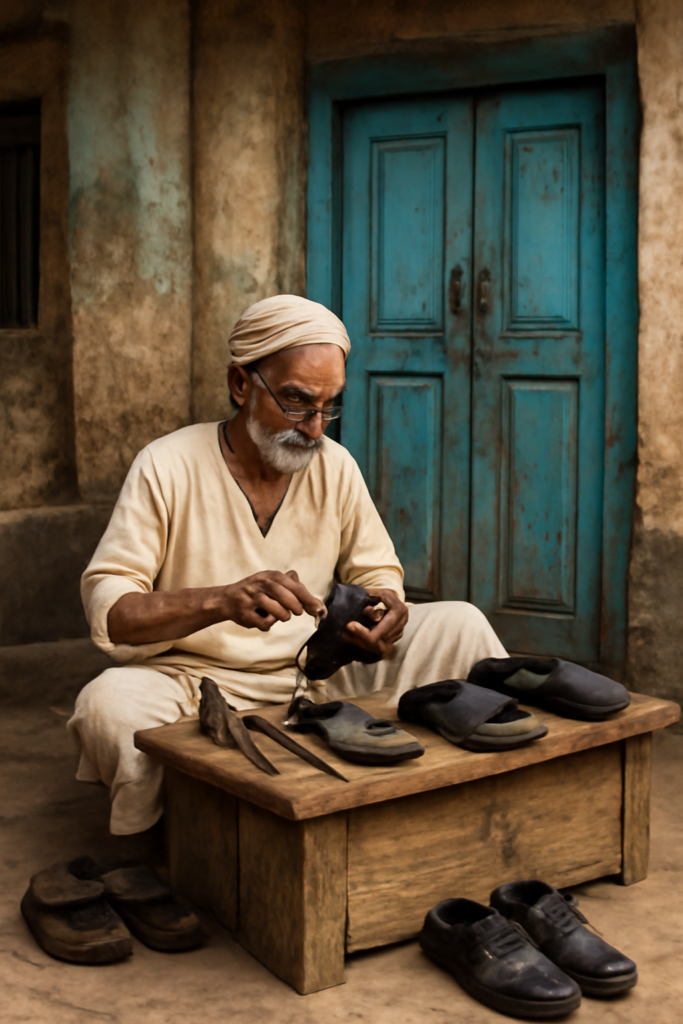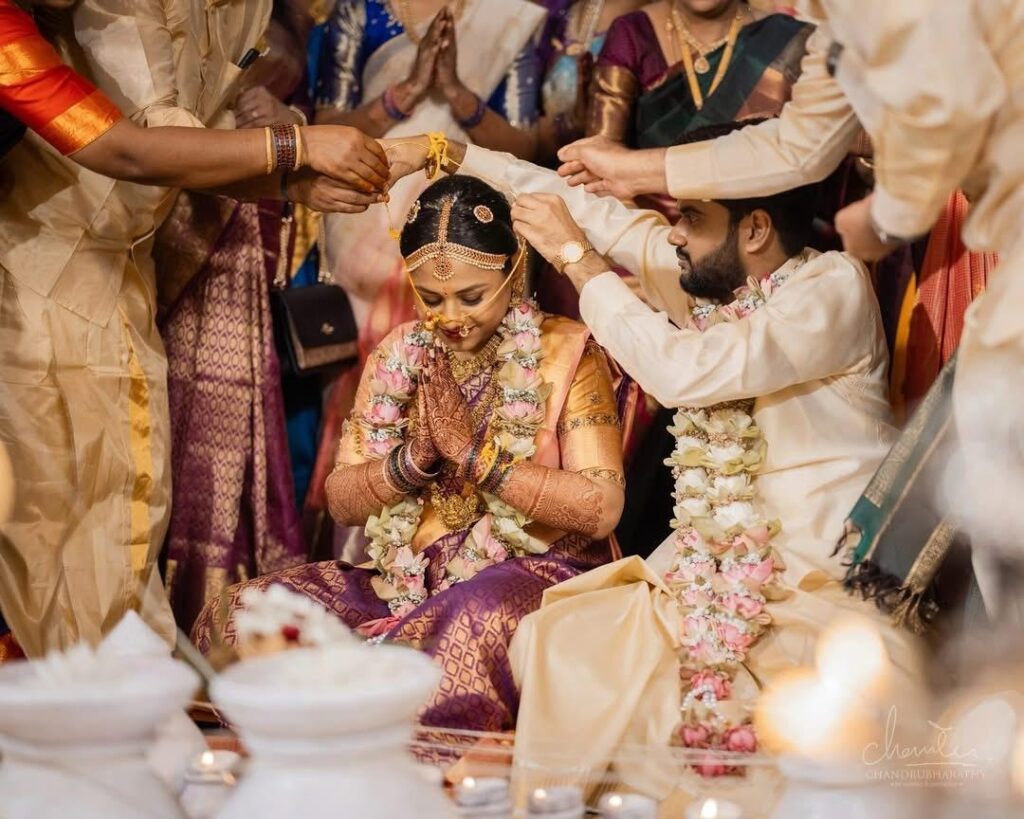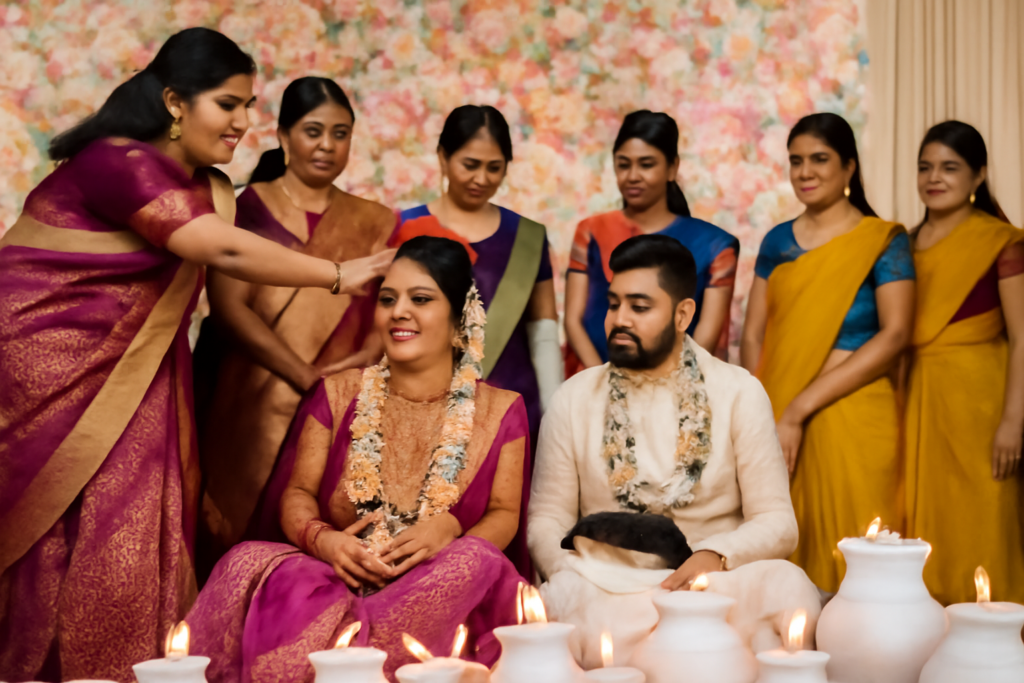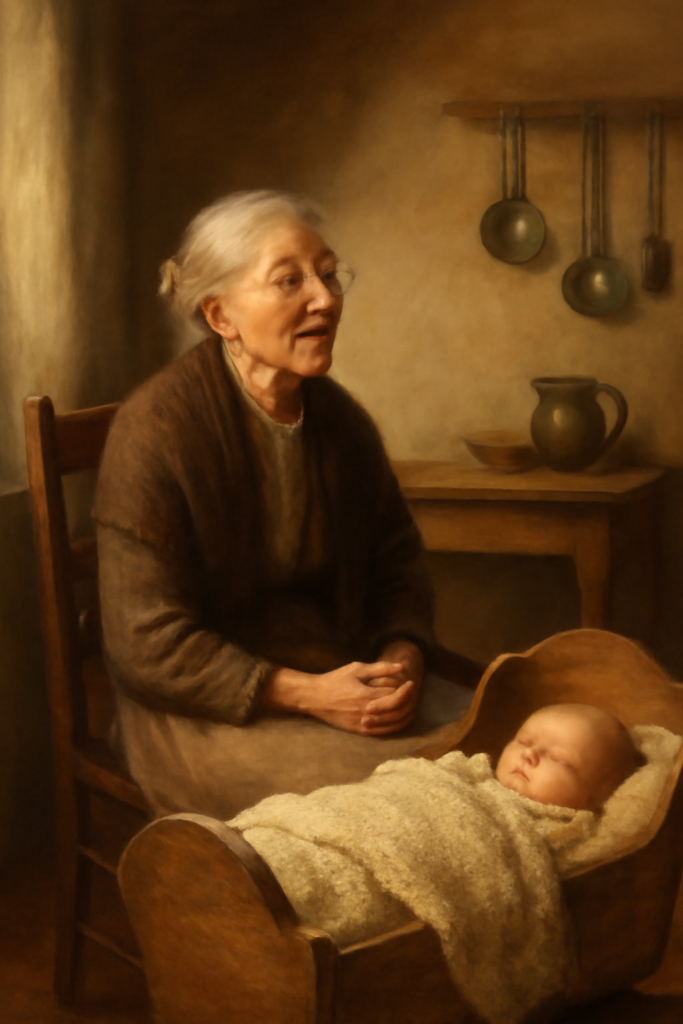Sai Kutir
By Lokanath Mishra
The salt-scented breeze of Puri carried with it the calls of temple bells, the laughter of children returning from school, and the shuffle of pilgrims who never seemed to stop coming. At the edge of a narrow lane stood a modest house with a peeling blue door and a signboard that read in faint, hand-painted letters: SAI Kutir. In the front verandah, a little wooden counter held scattered tools, threads, and scraps of leather. This was SAI Shoes Repairing Shop, where Ramesh, a cobbler from Andhra Pradesh, had built not just his livelihood but the heart of his world.

Ramesh’s hands were small and rough, the nails darkened from years of threading stitches through leather. Yet those same hands carried a strange grace. Shoes returned from him stronger than before, bags mended to endure more journeys, sandals reborn after their soles gave up. His customers loved his work, but perhaps they loved even more the quiet politeness that shone in his speech and the gentleness in his smile. He charged little, never cheated, and never hurried his work. To him, every stitch was a duty, not a trade.
His wife Kamala often sat beside him, helping to polish shoes or hand over needles threaded neatly. His mother, bent with age but sharp in mind, would also lend a hand when she wasn’t managing the tiny kitchen in the back. Their life was simple—three little children studying at the nearby Odia-medium school, subsidized rations from the BPL card, and the comfort of widow pension that kept Ramesh’s mother from feeling like a burden. They had once received government relief to patch up their home, and though the roof still leaked in heavy rain, inside that house there was laughter, warmth, and a peace that could not be bought.
Then one afternoon, when Ramesh had gone to Berhampur to buy new tools and raw material, a stranger appeared at the shop. She was young, hardly twenty-five, beautiful in a way that was both delicate and fierce, her eyes carrying both fire and sorrow. She spoke in Telugu and asked softly, “Is this SAI Kutir?”
Kamala nodded, curious.

“I am searching for a man named Bijoy,” the woman continued. “He told me this was his home.”
Kamala frowned. She had never heard of such a man. Ramesh’s mother, hearing voices, came forward to join the conversation. The young woman, who introduced herself as Rajeswari Reddy, explained further. She belonged to a respected family, managing her family’s business with strength unusual for her age. Bijoy had worked for her as an accounts manager. Their professional relationship had blossomed into a secret love, one that she dared not reveal at home. When her family objected to her choice, she had run away with Bijoy to Bangalore, clinging to dreams of a shared future.
But Bijoy had betrayed her. He had vanished, leaving her alone, pregnant, and desperate. The identity card he had shown her carried this very address. The letters, the photographs, even his signature—all of it had seemed so real. She had believed him. And now she was abandoned, in her advanced stage of pregnancy, with nowhere to go.

Tears streamed down her face as she whispered, “There is no place left for me now. My family will not take me back, and the man I trusted has disappeared. If I give birth to this child without a father’s name, society will crush us both. I… I don’t want to live anymore.”
Kamala’s heart trembled. She reached across the counter and held Rajeswari’s hand. “Sister, don’t speak like that. Life always shows another path. Please wait. Something will come.”

By the time Ramesh returned from Berhampur that evening, the small shop was heavy with silence and worry. The three women sat together, eyes swollen with tears. Listening to the story, Ramesh felt a storm inside his chest. What could an ordinary cobbler do for a woman abandoned so cruelly? But he could not send her away. He could not let despair swallow her life—or her child’s.
After long hours of talking, an extraordinary decision took shape—one born not out of desire but out of compassion, courage, and sacrifice. Ramesh and Kamala, bound by love and years of shared hardship, agreed to part ways on paper alone. A divorce was arranged—only a formality, for their hearts would remain tied. Soon after, Ramesh married Rajeswari quietly in a small temple. It was a union not of passion, but of protection, a lifeline thrown into turbulent waters.

When Rajeswari gave birth to a daughter, joy filled the walls of SAI Kutir. The baby’s cries echoed in the courtyard, mixing with the sounds of sewing machines and temple bells. Kamala held the child like her own, and Ramesh’s mother sang lullabies in broken Telugu. The family had stretched to include another soul, and instead of breaking, it had grown stronger.
Months passed, and Rajeswari, determined not to be a burden, invested her savings into a grand new venture. With twenty lakh rupees, she opened a leather and shoe store in Kamala’s name. “This is yours,” she said gently, “because you gave me life when I was ready to lose it.” The business flourished quickly. Customers who once came for repairs now came to buy new shoes and bags. The small cobbler’s shop became a bustling store, and prosperity entered SAI Kutir without arrogance.

With the same savings, Rajeswari built a larger house for them all, where laughter had even more space to bloom. Yet despite her wealth and strength, she never claimed the position of first wife. Kamala remained the heart of the household, her dignity untouched. Rajeswari stayed quietly as the second wife, content to belong, grateful to breathe.
In the end, three women—one mother, one wife, and one abandoned lover—wove their lives together with threads stronger than leather. And in the center stood Ramesh, a humble cobbler whose compassion stitched broken souls as gently as he stitched torn shoes.
Puri’s pilgrims still passed by, the temple bells still rang, but in one small lane where the signboard read SAI Shoes Repairing Shop, people whispered of a family unlike any other—where betrayal had been met with kindness, despair with courage, and abandonment with love.
And so they lived, not perfectly, not conventionally, but beautifully, proving that sometimes life writes stranger and softer stories than even the gods could imagine.

